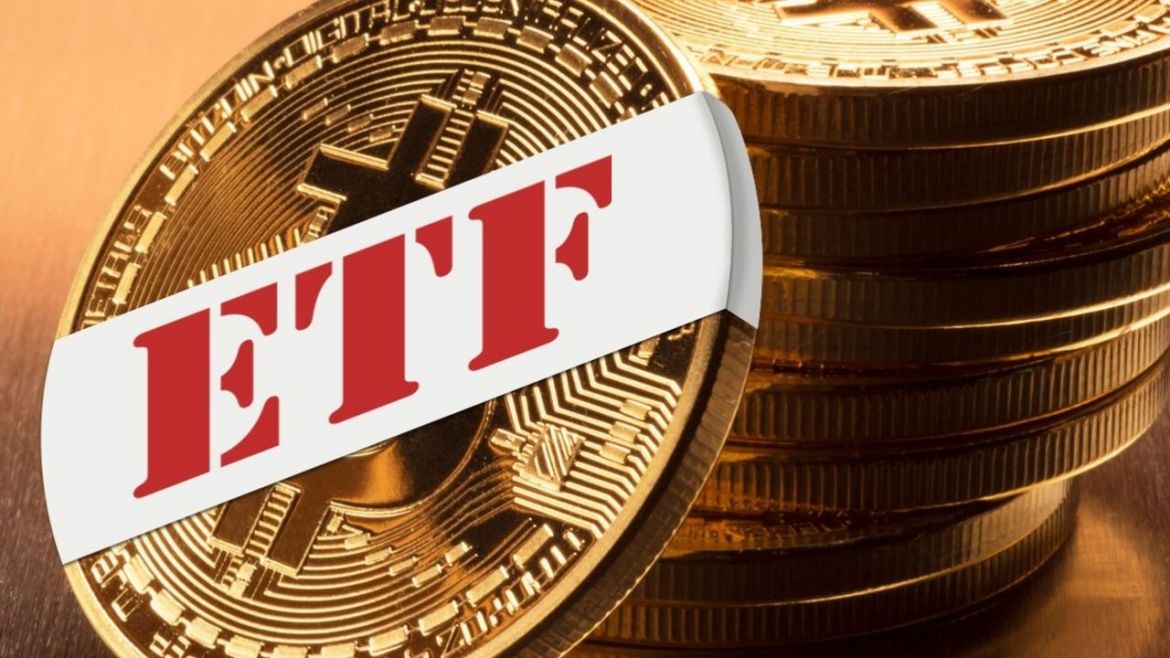Investors Pull Billions from Bitcoin ETFs Amid Market Downturn
21.12.2024 17:00 1 min. read Alexander Stefanov
A significant downturn in the cryptocurrency market has brought an end to the 16-day streak of inflows into US Spot Bitcoin ETFs, highlighting growing investor unease.
BlackRock’s Bitcoin ETF (IBIT) experienced its largest-ever outflow, further amplifying concerns. Fidelity’s FBTC also saw a notable reduction earlier this week, signaling a decline in risk-taking among market participants.
The recent plunge in Bitcoin prices has dampened market sentiment, leading to substantial withdrawals from digital asset funds. US Spot Bitcoin ETFs halted their consistent inflows on December 18, as the market turmoil intensified.
Data from Farside Investors revealed that BlackRock’s IBIT witnessed an unprecedented outflow of $72.7 million on December 20. This followed Fidelity’s FBTC, which saw $208.5 million withdrawn on December 19 — the largest outflow since its launch in January 2024. Total withdrawals from US Spot Bitcoin ETFs reached $671.9 million and $277 million on December 19 and 20, respectively, underscoring the impact of the market’s volatility.
The broader crypto market’s struggles appear to be tied to macroeconomic pressures and dwindling confidence in digital assets as speculative investments. This shift in sentiment has prompted institutional investors to reassess their exposure, resulting in large-scale liquidations. Analysts suggest that while these outflows reflect short-term caution, they could also signal a recalibration of investment strategies ahead of a potentially stabilizing market in 2024.
-
1
Robert Kiyosaki Buys More Bitcoin, Says He’d Rather Be a ‘Sucker Than a Loser’
02.07.2025 22:00 1 min. read -
2
This Week in Crypto: Whale Accumulation, Ethereum Signals, and a Sentiment Shake-Up
05.07.2025 21:00 3 min. read -
3
BlackRock’s IBIT Bitcoin ETF Surpasses 700,000 BTC in Record Time
08.07.2025 19:00 2 min. read -
4
Veteran Trader Peter Brandt Shares Simple Wealth Strategy with Bitcoin at Its Core
30.06.2025 15:00 2 min. read -
5
Bitcoin Tops Crypto Social Buzz as $110,000 Milestone Fuels Market Debate
04.07.2025 8:15 3 min. read
Bitcoin ETFs Attract Over $2 billion in Weekly Inflows: What’s Driving the Gains?
Bitcoin ETFs in the U.S. recorded $2.39 billion in net inflows over the past week, according to data from Farside Investors, marking one of the strongest capital surges since their launch.
Weekly Crypto Roundup: Bitcoin Hits ATH, Ethereum Surges, Trump Advances Crypto Reforms
Analyzing the latest updates shared by Wu Blockchain, this past week underscored a pivotal shift in the crypto landscape. Bitcoin surged to a new all-time high of $123,226, pushing the overall crypto market cap beyond $4 trillion—a milestone reflecting renewed investor confidence and accelerating institutional flows.
Over $5.8 Billion in Ethereum and Bitcoin Options Expired Today: What to Expect?
According to data shared by Wu Blockchain, over $5.8 billion in crypto options expired today, with Ethereum leading the action.
IMF Disputes El Salvador’s Bitcoin Purchases, Cites Asset Consolidation
A new report from the International Monetary Fund (IMF) suggests that El Salvador’s recent Bitcoin accumulation may not stem from ongoing purchases, but rather from a reshuffling of assets across government-controlled wallets.
-
1
Robert Kiyosaki Buys More Bitcoin, Says He’d Rather Be a ‘Sucker Than a Loser’
02.07.2025 22:00 1 min. read -
2
This Week in Crypto: Whale Accumulation, Ethereum Signals, and a Sentiment Shake-Up
05.07.2025 21:00 3 min. read -
3
BlackRock’s IBIT Bitcoin ETF Surpasses 700,000 BTC in Record Time
08.07.2025 19:00 2 min. read -
4
Veteran Trader Peter Brandt Shares Simple Wealth Strategy with Bitcoin at Its Core
30.06.2025 15:00 2 min. read -
5
Bitcoin Tops Crypto Social Buzz as $110,000 Milestone Fuels Market Debate
04.07.2025 8:15 3 min. read


